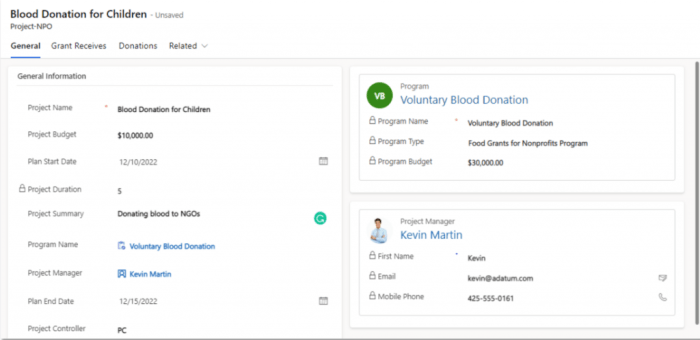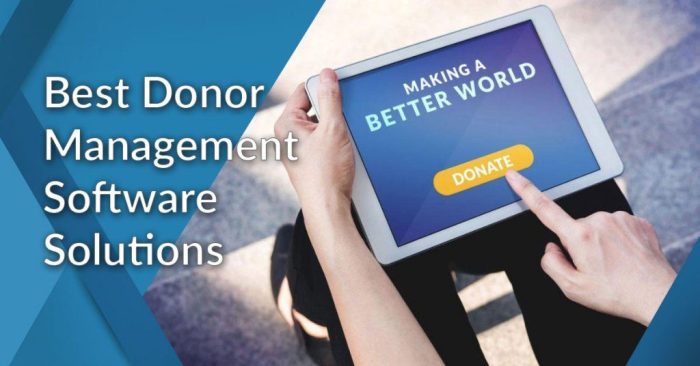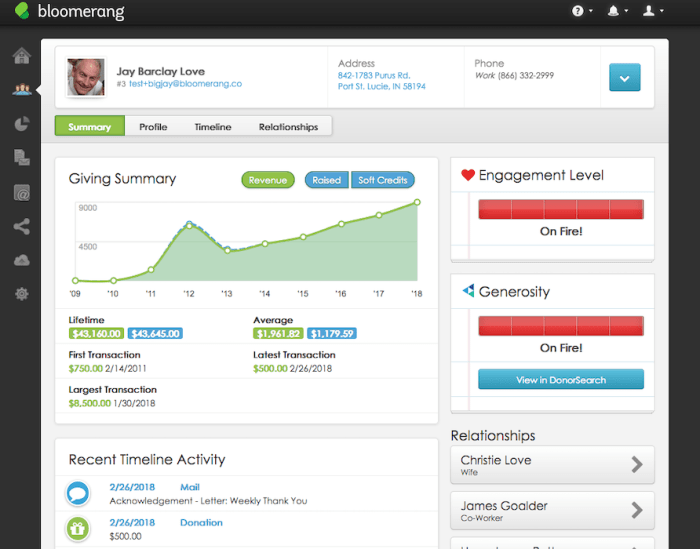In the dynamic landscape of nonprofit organizations, efficient donor management is paramount. Cultivating strong relationships with donors, tracking contributions, and maximizing fundraising efforts are crucial for sustainable growth. This is where Donor Management Software (DMS) steps in, providing a centralized platform to streamline these vital processes. This comprehensive guide will delve into the intricacies of CRM donor management software, exploring its features, benefits, and how to choose the right solution for your organization.
Understanding Donor Management Software (DMS)
Donor Management Software, often integrated with Customer Relationship Management (CRM) functionalities, is a specialized tool designed to manage all aspects of donor interactions. It moves beyond simple contact databases, offering sophisticated features for tracking donations, managing communications, and analyzing fundraising performance. Think of it as your organization’s central hub for everything donor-related, enhancing efficiency and maximizing impact.
Key Features of Effective Donor Management Software:
- Contact Management: Centralized database storing comprehensive donor information (name, address, contact details, donation history, communication preferences, etc.).
- Donation Tracking: Detailed records of all donations, including date, amount, method of payment, and associated fundraising campaigns.
- Fundraising Campaign Management: Planning, execution, and tracking of fundraising campaigns, including budgeting, goal setting, and performance analysis.
- Communication Management: Automated email marketing, personalized thank-you notes, and targeted communication based on donor segmentation.
- Reporting and Analytics: Generating insightful reports on donor behavior, fundraising effectiveness, and overall organizational performance. This allows for data-driven decision-making.
- Volunteer Management (Optional): Some DMS platforms integrate volunteer management capabilities, streamlining recruitment, scheduling, and communication.
- Grant Management (Optional): Advanced systems may include features for tracking grants, deadlines, and reporting requirements.
- Integration with other systems: Seamless integration with accounting software, payment gateways, and other relevant platforms.
Benefits of Implementing Donor Management Software
The advantages of adopting DMS extend far beyond simple organization. A well-chosen system can significantly boost your nonprofit’s fundraising efforts and operational efficiency.
Improved Donor Relationships:
Personalized communication, tailored to individual donor preferences, fosters stronger relationships and increases donor loyalty. Automated thank-you notes and timely updates keep donors engaged and informed.
Enhanced Fundraising Efficiency:
Streamlined processes, from donation tracking to campaign management, free up staff time, allowing them to focus on strategic initiatives rather than administrative tasks. Data-driven insights help optimize fundraising strategies for better results.

Source: amazonaws.com
Increased Donor Retention:, Crm donor management software
By understanding donor behavior and preferences, nonprofits can tailor their engagement strategies to retain existing donors and encourage repeat giving. Proactive communication and personalized outreach are key.
Better Data-Driven Decision Making:
Comprehensive reporting and analytics provide valuable insights into donor behavior, campaign performance, and overall organizational effectiveness. This data empowers informed decision-making and resource allocation.
Improved Compliance and Transparency:
Robust record-keeping ensures compliance with regulatory requirements and enhances transparency, building trust with donors and stakeholders.
Choosing the Right Donor Management Software
Selecting the ideal DMS requires careful consideration of your organization’s specific needs and resources. Here’s a breakdown of key factors to evaluate:
Factors to Consider:
- Size and Complexity of your Donor Base: A smaller organization may need a simpler system than a large one with thousands of donors.
- Budget: DMS solutions range in price, from affordable options for smaller nonprofits to enterprise-level systems for larger organizations.
- Required Features: Prioritize the features that are most critical to your organization’s needs, such as donation tracking, communication management, and reporting capabilities.
- Ease of Use: Choose a system that is intuitive and user-friendly for your staff, minimizing the learning curve and maximizing adoption.
- Scalability: Ensure the software can adapt to your organization’s growth and changing needs.
- Integration Capabilities: Check for compatibility with your existing accounting software, payment gateways, and other relevant platforms.
- Customer Support: Reliable customer support is crucial for resolving issues and ensuring smooth operation.
Popular Donor Management Software Options
(Note: This is not an exhaustive list, and the best option will depend on your specific needs and budget. Always conduct thorough research and compare options before making a decision.)
- DonorPerfect: A widely used solution known for its robust features and scalability.
- Blackbaud Raiser’s Edge NXT: A comprehensive platform for larger organizations with advanced features and integrations.
- Bloomerang: A user-friendly option with a strong focus on donor engagement and retention.
- Kindful: A cloud-based solution offering a balance of features and affordability.
- Salesforce Nonprofit Cloud: A powerful and customizable platform, often favored by larger organizations with complex needs.
Frequently Asked Questions (FAQ): Crm Donor Management Software
- Q: How much does donor management software cost? A: Prices vary widely depending on the features, scale, and provider. Expect to find options ranging from a few hundred dollars per year to several thousand.
- Q: Is donor management software difficult to learn? A: Most modern DMS platforms are designed with user-friendliness in mind. However, the learning curve will depend on the complexity of the software and your staff’s technical skills.
- Q: Can I integrate my existing accounting software with donor management software? A: Many DMS platforms offer integration capabilities with popular accounting software packages. Check for compatibility before making a purchase.
- Q: What are the key metrics to track in donor management software? A: Key metrics include donor acquisition cost, donor retention rate, average gift size, fundraising return on investment (ROI), and donor lifetime value.
- Q: How do I choose the right software for my organization? A: Consider your organization’s size, budget, needs, and technical capabilities. Research different options, request demos, and read reviews before making a decision.
Conclusion
Donor management software is an invaluable tool for nonprofits seeking to optimize their fundraising efforts and strengthen donor relationships. By carefully evaluating your needs and selecting the right platform, your organization can enhance efficiency, improve data-driven decision-making, and ultimately achieve greater impact. Investing in a robust DMS is an investment in your organization’s future success.
Call to Action
Ready to transform your donor management? Explore the options discussed above and find the perfect software solution to elevate your nonprofit’s fundraising game. Start your free trial today and experience the difference!
Clarifying Questions
What are the key features of a good CRM donor management software?
Key features include contact management, donation tracking, communication tools (email, SMS), reporting and analytics dashboards, and ideally, integration with other fundraising platforms.
How much does CRM donor management software typically cost?

Source: financesonline.com
Pricing varies greatly depending on the features, number of users, and provider. Expect a range from free options with limited functionality to several hundred dollars per month for comprehensive solutions.
Is CRM donor management software difficult to learn and use?
Most systems offer user-friendly interfaces and training resources. The learning curve depends on the software’s complexity and the user’s technical proficiency, but many are designed for intuitive use.
How can I choose the right CRM donor management software for my organization?

Source: callhub.io
Consider your organization’s size, budget, specific needs, and technical capabilities. Research different providers, read reviews, and potentially request demos before making a decision.
